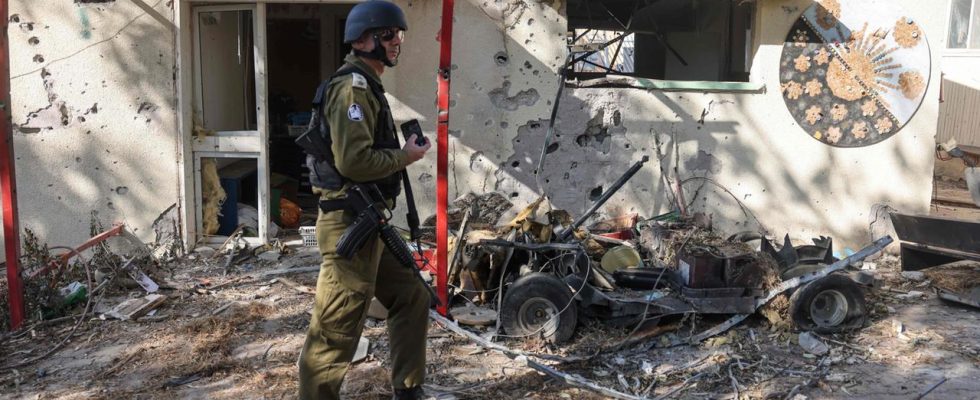background
Hamas’ terrorist attack has catastrophic humanitarian consequences – but the economic impact could also hit the world hard. What possible risks do experts see?
The world has already been hit hard by the conflicts in the Middle East. In the wake of the Yom Kippur War in October 1973, Arab oil-exporting countries imposed an embargo against states with a pro-Israel stance. Although the armed conflict only lasted for a short time, there were upheavals in the oil markets.
The result was one of the worst economic crises since the Second World War – with high inflation, a weak economy and rapidly increasing unemployment. In order to save energy, swimming pools in Germany were closed, holidays were extended, car-free Sundays were ordered and summer time was introduced.
There are currently no distortions on the markets
How much this situation can be transferred to the current situation is still unclear. At the moment, investors and many industry experts do not seem to be assuming that there is an imminent threat of another global oil crisis. Oil deliveries are currently not at risk because Israel is not a major oil exporter. Thomas Puls, for example, an energy expert at the Institute of German Economics in Cologne, does not expect any further fluctuations on the financial markets if the conflict remains limited to the Israel and Gaza region.
Whether it stays that way depends on how the conflict develops. “If there were conflicts in the Persian Gulf and even the Strait of Hormuz was closed, the consequences for the price and availability of crude oil would be difficult to predict,” said Puls. About a fifth of the world’s oil is transported through the 55-kilometer-wide strait.
Oil prices only responded with a short-term increase
Moritz Schularick, President of the Kiel Institute for the World Economy, also sees only minor immediate economic effects. “There are currently no signs that the oil producers are becoming more involved. The relations between Saudi Arabia and the United Arab Emirates with Israel have recently improved. At least in previous Palestinian terrorist attacks in Israel, the conflict did not expand.” said Schularick.
The oil price has reacted with a short-term increase, but the magnitude has not yet been dramatic. The high levels recorded at the end of September have not yet been reached again.
However, Schularick sees another potential source of tension in the geopolitical dispute between the USA and Europe on the one hand and the BRICS countries on the other. These now also include Iran and Saudi Arabia. If sanctions are tightened or enforced against Iran as a result of the conflict, Schularick expects oil prices to continue to rise.
React to different scenarios
The advisors at azemos Vermögensberatung in Offenburg are currently receiving a lot of calls from worried customers who are also nervous about the situation in the Middle East. That’s why managing director Rainer Laborenz put together a team that runs through various scenarios.
Basically, the consultants are amazed at how calmly the oil markets have reacted so far to the re-emergence of the Middle East conflict. Ultimately, the oil price is considered a classic Middle East crisis indicator because boycott measures and sanctions could lead to a short-term shortage of oil supply.
The most likely scenario is that the hostilities would end relatively quickly, but that the conflict would continue as before with recurring terrorist attacks by Hamas and Hezbollah. “This would have no lasting impact on the price of oil because, unfortunately, it corresponds to the sad reality,” said Laborenz.
What an escalation would mean
But there is another scenario that would have far more dramatic consequences. In the worst case, the Western world could again be cut off from Arab oil as a result of boycott measures. Then a situation similar to that in 1973 could arise.
“If the oil price rose sharply, we would again have the problem of rising inflation rates,” says Laborenz. “We doubt that the central banks still have much scope to increase interest rates, because if interest rates continue to rise, many states and companies would reach the limits of their solvency. We would therefore have to live with higher inflation rates for a longer period of time, a situation that would affect the purchasing power of money and that too trust in it would be permanently eroded.”
The worst-case scenario would be an escalation of the conflict, in which the major powers Russia and the USA could also be involved. “This scenario would most likely lead to oil prices going through the roof, which in turn would have devastating consequences for the economy, not only in the Western world. Probability of occurrence: Unfortunately, it cannot be completely ruled out, even if the markets are apparently not currently pricing in this scenario “, says Laborenz.
Barely Possibilities for action in the West
Thomas Puls from the IW sees little opportunity for action in the event of a negative development. “If the flow of oil from the Gulf is restricted, there will be no more production reserves and the states’ strategic reserves were also reduced last year to stabilize prices. Therefore, I see no opportunity to intervene effectively in this worst-case scenario,” it concluded of the economist.
So we can only hope that it doesn’t come to that. For the economy – but even more so for the people affected.

